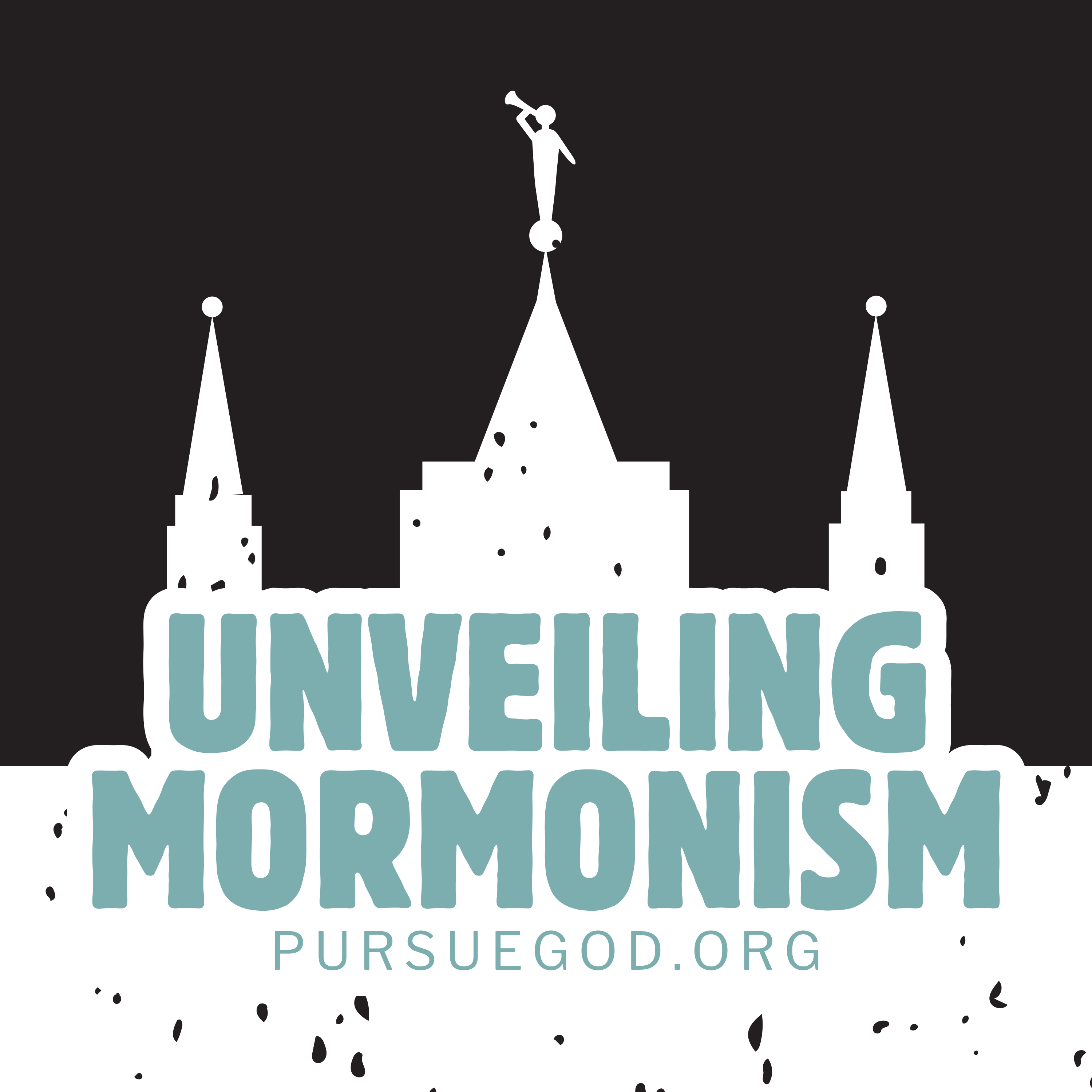Do Mormons Believe in Heavenly Mother? (LDS Gospel Topics)
In this episode, Bryan, Bo and KD talk about the Mother in Heaven LDS Gospel Topic.
Find the article here.
--
The Unveiling Mormonism podcast pulls back the curtain on Mormon history, culture and doctrine. Join us for new episodes every Monday.
Find resources to talk about these episodes at pursueGOD.org/mormonism.
Help others go "full circle" as a follower of Jesus through our 12-week Pursuit series.
Click here to learn more about how to use these resources at home, with a small group, or in a one-on-one discipleship relationship.
Got questions or want to leave a note? Email us at podcast@pursueGOD.org.
--
The "Mother in Heaven" doctrine in Mormon theology, which teaches the existence of a divine mother alongside God the Father, has been a subject of discussion and controversy within the Church of Jesus Christ of Latter-day Saints (LDS Church). While the LDS Church officially affirms this doctrine, it remains somewhat vague and underdeveloped in official teachings. Several key arguments against or critiques of the "Mother in Heaven" doctrine are as follows:
1. Lack of Scriptural Support
Critics argue that the concept of a "Mother in Heaven" is not explicitly taught in the Bible or the Book of Mormon. There are no direct references to a divine mother figure in these scriptures. While some Latter-day Saints cite passages that imply a heavenly mother (such as references to the "Heavenly Father" and his "children"), these passages are not specific to a maternal deity. Critics contend that the doctrine is an extrapolation based on theological assumptions rather than scriptural foundation.
2. Ambiguity in Doctrine
The doctrine of a Mother in Heaven has not been systematically developed or defined in LDS teachings. Official statements by church leaders are rare and often vague, leading to concerns about its theological and doctrinal clarity. Some critics argue that the lack of detailed teaching about her nature, role, and relationship to God the Father makes it difficult for members to fully understand or engage with the doctrine.
There is a practical concern about the limited role that the Mother in Heaven plays in LDS worship and rituals. Critics argue that while her existence may be acknowledged, she is not directly involved in the faith practices of members, such as prayer or temple rituals. This leads to questions about her relevance within the broader framework of Mormon worship and theology, raising concerns that her role might be more symbolic than substantive.
3. Historical Silence and Inconsistency
Historically, early LDS leaders (including Joseph Smith) did not explicitly teach about a Mother in Heaven, and the concept was rarely mentioned for many years. The doctrine became more prominent in the 20th century but remains less central than other aspects of LDS theology. Critics argue that this historical silence and inconsistency undermine the claim that the concept is an essential or deeply rooted part of Mormon belief.
4. Theological Concerns about Gender Roles
Some critics view the doctrine as reinforcing traditional gender roles by placing women in a subordinate position to God the Father. They argue that, by emphasizing the distinction between the Father and the Mother in Heaven, the doctrine may inadvertently reinforce ideas of patriarchal hierarchy. Others contend that it fails to offer a robust theological vision of women’s equality with men, especially given the traditional gender roles often ascribed to women in the LDS Church.
5. Heresy
In traditional Christian theology, God the Father is often portrayed as the singular, omnipotent deity, without the need for a divine consort. Some critics argue that introducing a Mother in Heaven diminishes the monotheistic view of God, potentially complicating the relationship between God and humanity. This can be seen as problematic from a Christian theological standpoint, where God is typically understood as a single, indivisible entity.
Given the lack of clear, authoritative teachings about the Mother in Heaven, some argue that it can lead to speculative ideas and even heretical notions. For example, there have been occasional theological and social debates about the role of heavenly mother, which could distract from core doctrines of salvation, Jesus Christ’s role, and the focus on God the Father in worship.
Conclusion
While the doctrine of a Mother in Heaven is acknowledged in some Mormon circles, critics highlight issues related to its lack of scriptural foundation, doctrinal ambiguity, historical inconsistency, gender implications, and theological coherence. Many believe that it is more of a speculative or peripheral teaching rather than a central tenet of the LDS faith.



